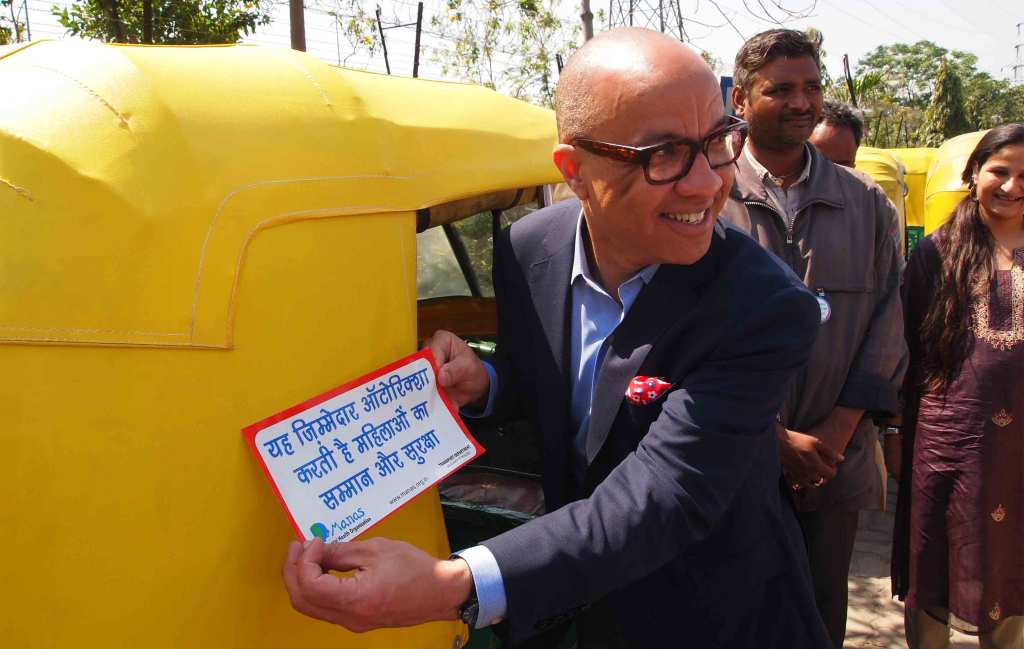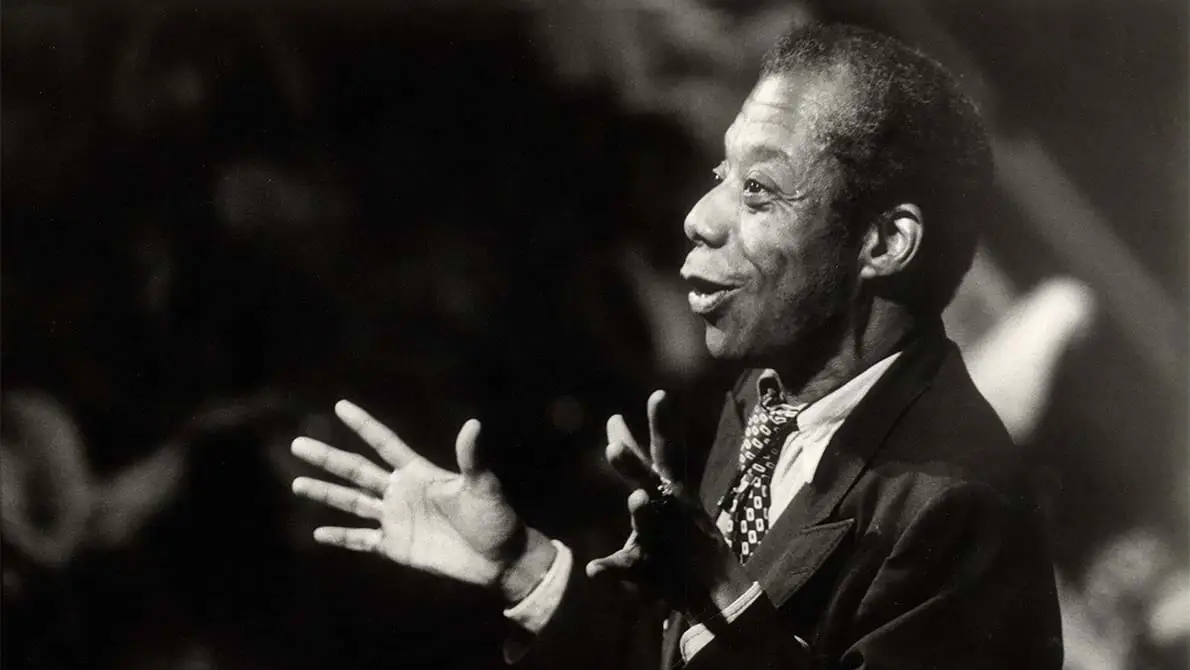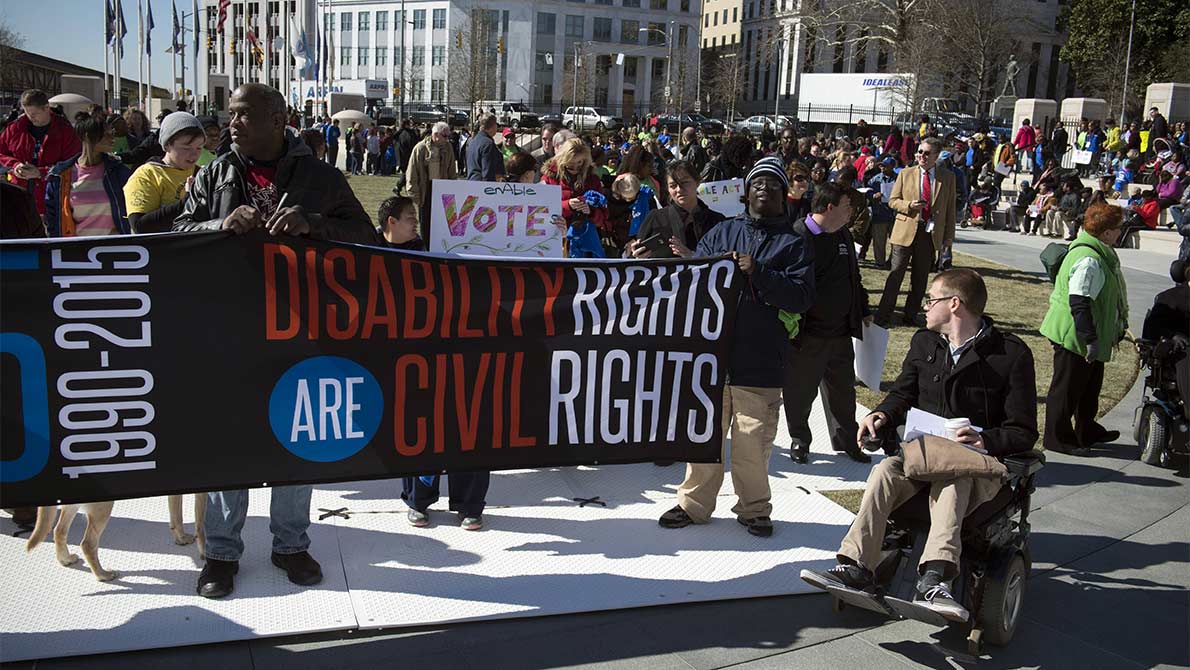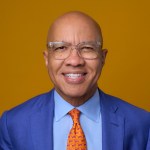
I was a sophomore in college when I first encountered the writing of James Baldwin. His courageous spirit, his clarion voice, and his moral imagination expanded my consciousness of what it meant to be black in America. It helped me make sense of my own experience growing up in the rural South during the 1960s.
This past year, as I have traveled across the country and around the world, Baldwin’s clear-eyed understanding of our human frailties—as well as our potential for transformation—has traveled with me. It has given me #reasonsforhope.
Certainly, the events of this year have tested any commitment to hope, and to the belief that equality can triumph over indifference and injustice. We are witnessing alarming levels of racism and bigotry in the West. We feel anguished and powerless over the plight of refugees from war-torn regions in the Middle East and Africa. The world over, continued Violence against Women & Girls, ethnic minorities, LGBTQ communities, and other vulnerable people reminds us that inequality can exact deadly consequences.
In the United States, we find ourselves grieving far too often. We despair over the innocent African Americans killed by police and over the killings of innocent officers in Dallas and Baton Rouge. As we try to measure the incalculable costs of this violence—and the trauma it expands and extends—we are called to work with greater urgency to connect the reality we see with the solutions we seek.
As we continue to confront, and be confronted by, entrenched inequality of all kinds—as we search for ways to understand and address it—I have returned repeatedly to one of Baldwin’s insights in particular: “Ignorance, allied with power,” he wrote in 1972, “is the most ferocious enemy justice can have.”
These words resonate powerfully today. That is in large part because they compel us to confront our responsibility. They demand that we look closely at our own ignorance and our own power. And as I discovered for myself, these two acts are not easy for any of us.
Confronting power, privilege, and ignorance

When Baldwin crafted his critique, power was held almost exclusively by wealthy white men and their institutions, including some of the very institutions whose exercise of power we still scrutinize.
Since his writing, however, our definition of the power that allies with ignorance has expanded to include privilege: the unearned advantages or preferential treatment from which we all benefit in different ways—whether due to our place of origin, our citizenship status, our parents, our education, our ability, our gender identity, our place in a hierarchy.
The paradox of privilege is that it shields us from fully experiencing or acknowledging inequality, even while giving us more power to do something about it. So, privilege allied with ignorance has become an equally pernicious, and perhaps more pervasive, enemy to justice. And just as each of us holds some form of power or privilege we can challenge in ourselves, we each hold some form of ignorance, too.
Typically, in conversations about race, the word ignorance is associated with outright bigotry—and no doubt the two can be related. Yet in my experience, ignorance remains such a ferocious enemy because of its silent, constant, unacknowledged presence.
I am a black, gay man, so some might assume that I’m especially sensitive to these issues and dynamics. But during the past year I have had to confront my own ignorance and power, and come to terms with the ways I was inadvertently fueling injustice.
Last June, my colleagues and I announced that FordForward would focus on disrupting inequality. During the weeks that followed, I received more than 1,500 emails in response, mostly congratulatory. And then something happened: I was confronted with feedback that highlighted my own obliviousness.
My friend Micki Edelsohn, founder of a remarkable organization called Homes for Life in Wilmington, Delaware, was the first to note that FordForward made no mention of a huge community: the more than one billion people around the world who live with one form of disability or another, some 80 percent of them in developing countries. “I applaud you for taking on inequality,” she said. “But when you talk about inequality, how can you not acknowledge people with disabilities?”
Many others reiterated her unsettling message, from former governor Tom Ridge and Carol Glazer, chairman and president, respectively, of the National Organization on Disability, to Jennifer Laszlo Mizrahi, the president of RespectAbility. As a matter of fact, it was Jennifer—now among our most constructive, valued partners—who, in a rather scorching email, called me a hypocrite. I deserved it.
Indeed, those who courageously—and correctly—raised this complicated set of issues pointed out that the Ford Foundation does not have a person with visible disabilities on our leadership team; takes no affirmative effort to hire people with disabilities; does not consider them in our strategy; and does not even provide those with physical disabilities with adequate access to our website, events, social media, or building. Our 50-year-old headquarters is currently not compliant with the Americans with Disabilities Act (ADA)—landmark legislation that celebrated its 26th anniversary this summer. It should go without saying: All of this is at odds with our mission.
Disability, inequality, and missed opportunities

The fact is, people with disabilities—whether visible or invisible—face harsh inequalities. People with physical, sensory, intellectual, or mental health disabilities do not benefit from the same opportunities as those without. This inequality is pervasive, and it regularly intersects with other forms of inequality we already address in our work.
For instance, RespectAbility found that more than 750,000 people in our jails and prisons have a disability. How many times have I thought, talked, or written about the imperative of criminal justice reform in the past year, I wonder, without thinking about this aspect of the crisis at all?
And so, for me and for the foundation, my first question was: How had this happened—how could we possibly miss this? The answer, simply put, is power, privilege, and ignorance—each of which multiplies the prejudicial effects of the other.
I am personally privileged in countless ways—not least of which is that I am able bodied, without immediate family members who have a disability. In my own life, I have not been forced to consider whether or not there were ramps before entering a building, or whether a website could be used by people who were hearing or visually impaired.
In the same way that I have asked my white friends to step outside their own privileged experience to consider the inequalities endured by people of color, I was being held accountable to do the same thing for a group of people I had not fully considered. Moreover, by recognizing my individual privilege and ignorance, I began to more clearly perceive the Ford Foundation’s institutional privilege and ignorance as well.
Some of my colleagues have raised the issue of disability rights in informal, individual conversations. Others have personal experience with disability, or have cared for friends and family who do. Yet over the 18months that we meticulously crafted FordForward—an extensive, exhaustive process—we did not meaningfully consider people with disabilities in our broader conversations about inequality.
Thinking back, I had believed that our institution—all our people, all our processes—would serve as a check and balance against individual biases. I assumed, without really stopping to acknowledge my assumption, that issues I might overlook, or be ignorant of, would be raised by someone else—and that the space was there to raise them. It is clear to me now that this was a manifestation of the very inequality we were seeking to dismantle, and I am deeply embarrassed by it.
Yet the experience has kindled a learning moment for me—and for all of us at Ford—precisely because it affirms something important about how most institutions work, or fail to, and how we can make them work better for more people.
This is not to say this system of checks and balances does not already exist. The diversity of perspectives within our organization and our board is perhaps one of our greatest strengths. Still, as some have pointed out, this diversity does have gaps. As an organization composed of individuals with different inherent biases, we are not immune to ignorance. While checking each other’s ignorance in one area, we may simultaneously—and unconsciously—reinforce and even ratify it in another. In this way, an absent voice or constituency may not merely be unconsidered; it may as well not exist.
This kind of institutional ignorance is wide ranging. We see it when companies and organizations offer unpaid internships, and in the lack of diversity on the boards of cultural institutions. We see it in the false choices between pro-victim and pro-law enforcement policy imperatives, and in responses to institutionalized racism more broadly. I think it’s fair to say that this same narrow-mindedness undercuts all of us in philanthropy—and given our charge, it is unconscionable. Despite our best intentions, when we fail to address ignorance within our organizations, we are complicit in allowing inequality to persist.
The good news is: We can change. And we are changing. Among all the many challenges facing our world and our work, the solution to this one is entirely within our control. In order to make our organizations more effective, we must consciously, deliberately lead them to become less ignorant.
From ignorance to enlightenment
So how do we do this? How do we move from unwitting ignorance to enlightened action?
For my colleagues and me, the transformation starts with acknowledging our own fallibility and deficiencies. We are becoming more comfortable with uncomfortable feedback. Rather than adopting a defensive posture by default, we are opening ourselves to dialogue and learning. As we know, change takes time, and we may not succeed fully right away. But we are committed to doing better, and we hope that continual feedback will keep us honest.
In this particular case, we have sought out the counsel of numerous people with disabilities, as well as disability rights advocates—including visionary leaders like Judy Heumann and former senator Tom Harkin, and our colleagues at the Open Society Foundations and Wellspring Advisors, who were pioneering funders in this area more than a decade ago. These conversations have offered us tremendous insight into how we can—and will—include people with all types of disabilities in our work.
To be clear, we will not initiate a new program on disabilities. Rather, we will integrate an inclusive perspective across all of our grantmaking. As I’ve come to learn, the mantra of the disability community is “Nothing about us, without us”—words that ring true across our work. After all, we make better decisions when we hear and heed the important contributions of all humankind. And I am confident that by adding and applying this additional lens across our efforts—by asking the extra question, Are we mindful of the needs of people with disabilities?—we will see new opportunities we otherwise might have missed.
We also are taking immediate, practical action. For starters, we revisited our plans for the renovation of our headquarters to ensure that we go beyond the requirements of the ADA, so people with and without disabilities have the same quality of experience in the Ford Foundation building. We are also addressing our hiring practices. And soon we will ask all potential vendors and grantees to disclose their commitments to people with disabilities in the context of their efforts on diversity and inclusion.
This is an example of how the Ford Foundation is striving to redress an issue we didn’t get right. But more than that, it is a call to reflect on our personal and collective ignorance—and to work more conscientiously to combat that ignorance, no matter what shape it takes.
For some, this might mean reconsidering the makeup of a board or leadership team—or reexamining recruiting and hiring practices that may unintentionally exclude certain people. For others, it might mean reassessing a program based on the context that surrounds it, or reflecting on the language we use when we talk about the people we work with. Or it might mean asking for uncomfortable comments and criticism, and seizing them as an opportunity for growth.
Demanding more of ourselves, delivering more for others
We simply cannot and will not defeat the enemies of justice—or dispel ignorance—without taking time to reflect on our own lives, and without asking difficult questions: Who am I forgetting? Which of my assumptions are flawed? Which of my beliefs are misbegotten?
To do this, we need to put aside our pride. We need to open our eyes, ears, minds, and hearts in order to embrace a complete and intersectional view of inequality. Only when we permit ourselves to be equal parts vigilant and vulnerable, can we model the kind of honest self-reflection we hope to see across our society.
If “ignorance allied with power” is, in fact, the greatest enemy of justice—and the greatest fuel for inequality—then empathy and humility must be among justice’s greatest allies. This will be the work of our year ahead and beyond. It is the work of engaging directly with the root causes and circumstances of injustice that make philanthropy both possible and necessary.
For my part, I am hopeful. By demanding and expecting more of ourselves and our institutions, we can deliver more for others. By listening more to each other, we can continue to forge a more just way forward, together.
